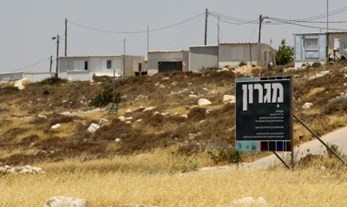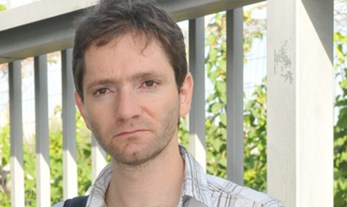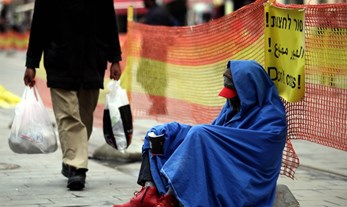


Requiem for the 18th Knesset
Written By: Prof. Ofer Kenig
Upon the announcement of early elections, IDI researcher Dr. Ofer Kenig reviews the performance of the 18th Knesset and wonders how it will be judged by history.

The Haredim and the State of Israel
Written By: Prof. Yedidia Z. Stern, Jay Ruderman
In an op-ed in The Jerusalem Post, IDI's Prof. Yedidia Stern, who served on the Plesner Committee for Equality in National Service, and Mr. Jay Ruderman analyze the Haredi community's reluctance to serve in the Israeli army and present an approach that will facilitate Haredi integration into Israel's army and society.

Trapped between the Fences
Written By: Prof. Reuven (Ruvi) Ziegler
IDI researcher Attorney Reuven (Ruvi) Ziegler argues that the response of the Israeli government to the plight of 20 Eritrean asylum seekers trapped between the fences of the Israeli-Egyptian border tests Israel's adherence to rulings of its own Supreme Court.

The Fruit of a Poisonous Tree
Written By: Dr. Amir Fuchs
Israeli politicians deemed the attack of a group of Arab teens by a group of Jewish teens to be the act of "bad apples" who don't represent the norm. In the following op-ed, however, IDI researcher Attorney Amir Fuchs warns that the radicalization of Israeli youth is the fruit of a poisonous tree being cultivated in the Knesset itself.

Ultra-Orthodox Conscription: Making It Work
Written By: Momi Dahan
Will the High Court of Justice’s refusal to extend the Tal Law indeed reduce the inequality of burden sharing in Israeli society? IDI Senior Fellow Prof. Momi Dahan does not think so, and argues that ultra-Orthodox Jews in Israel should be exempted from the army and allowed to work, so as to assume their fair share of the tax burden.

The Status of the West Bank Settlements Under International Law
Written By: Ido Rosenzweig, Frances Raday
Prof. Frances Raday and Adv. Ido Rosenzweig analyze the conclusion of the Israeli government's committee on the status of Israeli building in the West Bank, which was headed by former Justice Edmond Levy, and raise questions based on International Law and United Nations resolutions.

Do Educational Gaps between Elementary School Teachers Have an Impact on Achievement Gaps between Jewish and Arab Schools?
Written By: Nabil Khattab
Are there gaps in the level of formal education required of elementary school teachers in the Arab and Jewish sectors in Israel and the level of education that they actually attain? Dr. Nabil Khattab, head of IDI’s Arab-Jewish Relations project, explores this question as part of an attempt to understand gaps in achievement between Jewish and Arab schools.

The Emergence of New Political Parties in Israel
Written By: Parliament Staff
A survey of the creation of new political parties in Israel, from the state's founding through 1992, which was originally published in Hebrew in Parliament, IDI's online journal.

Do Not Exempt Religious Schools from Accessibility Requirements
Written By: IDI Website
In response to the preliminary passage of an amendment that would exempt religious educational institutions from complying with accessibility requirement, a group of leading Israeli rabbis appealed to Israel's elected officials and requested their intervention to prevent the exemption from applying to religious schools. Rabbi Shay Piron, who directs IDI's work in this field under the auspices of IDI's Human Rights and Judaism project, coordinated this important effort.

All for One and One for All or Every Party for Itself? Cooperation among Israeli Political Parties
Written By: Naomi Himeyn Raisch
An analysis of the different patterns of alliances, unions, and mergers between political parties in Israel, which was originally published in Hebrew in IDI's online "Parliament" journal.

Call for Proposals: Regulating the Activities of Lobbyists in the Knesset
Written By: IDI Website
On April 4, 2012, IDI published an ad in the Hebrew Haaretz daily newspaper, appealing to the public for input that will inform the Institute's efforts to draft a proposal for regulating the activities of lobbyists in the Knesset.

The Amendment of the Criminal Procedure Law
Written By: Prof. Yuval Shany, Ido Rosenzweig
In an op-ed originally published in Haaretz, IDI Senior Fellow Yuval Shany and IDI Researcher Attorney Ido Rosensweig critique an amendment that would allow interrogations of security defenders to go unrecorded, and warn that it is against public interest.

Do Not Put an End to Ultra-Orthodox Army Service
Written By: Haim Zicherman
Following the dissolution of the Committee to Advance Equality in Sharing the Burden, committee head MK Yohanan Plesner submitted proposals for alternatives to the Tal Law. In this article, IDI Researcher Attorney Haim Zicherman, who served as the content coordinator of the Plesner Committee, warns that some of those measures were personal recommendations rather than recommendations of the Committee, and may reverse trends of increasing army service by ultra-Orthodox Jews.

IDI President Dr. Arye Carmon on the Ehud Olmert Verdict
Written By: Dr. Arye Carmon
In this video interview, IDI Former President and Founder Dr. Arye Carmon responds to Former Prime Minister Ehud Olmert's acquittal of most of the charges against him in July 2012.

Prof. Mordechai Kremnitzer on the Ehud Olmert Verdict
Written By: Prof. Mordechai Kremnitzer
In this video interview, IDI Vice President of Research Prof. Mordechai Kremnitzer responds to verdict in the trial of Former Prime Minister Ehud Olmert.

The Security Check Appeal: Another Extension of the Judgment
Written By: Eli Bachar
Eli Bahar, former legal adviser to the General Security Service, analyzes the Israeli Supreme Court’s decision to postpone ruling on a petition requesting the elimination of ethnic security checks in Israeli airports.

Half-Measures in the War on Terror: An Israeli Perspective
Written By: Prof. Mordechai Kremnitzer, Prof. Yuval Shany
In an op-ed in The Jerusalem Post, Prof. Mordechai Kremnitzer and Prof. Yuval Shany discuss the need for measures, laws, and institutions designed to combat the war on terror in order to strike a balance between concern for national security and the need to safeguard democratic values such as human rights and the rule of law.

On an Appropriate Evacuation and Inappropriate Petitions for Postponement
Written By: Dr. Amir Fuchs
Attorney Amir Fuchs responds to Research Fellow Yair Sheleg's article "Appropriate and Inappropriate Evacuation," and takes exception to some of the arguments that it raised regarding the evacuation of settlements in Judea and Samaria on the basis of property rights.

Of Whistleblowers and Leakers
Written By: Dr. Tehilla Shwartz Altshuler
On May 30th, 2012 Attorney General Yehuda Weinstein announced his intention to indict <em>Haaretz</em> journalist Uri Blau on charges of aggravated espionage for his role in the Anat Kamm affair. IDI Senior Researcher Dr. Tehilla Shwartz Altshuler, head of the Institute's Media Reform Project, responds to this decision.

The Tal Law: Judicial Responsibility at its Best
Written By: Prof. Mordechai Kremnitzer
Prof. Mordechai Kremnitzer presents a contrasting view to Prof. Yedidia Stern's assertion that the Israeli Supreme Court's ruling on the exemption of ultra-Orthodox men from military service in Israel is "<a href="http://en.idi.org.il/analysis/articles/judicial-activism-at-its-height">Judicial Activism at its Height</a>."

Israel's Political Parties: Strengthen the Party, not the Cult of Personality
Written By: Prof. Gideon Rahat
Prof. Gideon Rahat, Director of Research of IDI's Political Reform project, recommends several changes that can help strengthen Israel's political parties and restore them to reasonable performance.

The Finest or Worst Hour of Israeli Politics?
The nocturnal formation of a new coalition, just as legislation to dissolve the Knesset was about to be passed, left many wondering if this was Israeli politics at its best or at its worst. Dr. Dana Blander explores both sides of this episode, which is likely to redefine what is forbidden, permitted, and worthwhile in Israeli politics.

Appropriate and Inappropriate Evacuation
Written By: Yair Sheleg
IDI Senior Researcher Yair Sheleg shares his thoughts on the differences between the evacuation of Yamit and the Sinai Peninsula in the past, and the upcoming evacuations of Migron and the Ulpana neighborhood of Beit El.

The Electoral System: Strengthen the Foundations before Fixing the Roof
Written By: Prof. Ofer Kenig
Dr. Ofer Kenig of IDI's Political Reform project discusses the need for electoral reform in Israel, recommending the adoption of a regional-proportional system in particular.

IDI Experts: New Coalition Presents Historic Opportunities but also Dangers
IDI experts respond to the coalition deal that brought Kadima into the government just as the call for new elections was being finalized.

Basic Law: Legislation – A Lethal Blow to the Supreme Court
Written By: Prof. Mordechai Kremnitzer, Dr. Amir Fuchs
IDI Vice President Prof. Mordechai Kremnitzer and Adv. Amir Fuchs analyze the proposed legislation that would allow the Knesset to reinstate laws that have been struck down by the Israeli High Court and warn of a threat to judicial review and civil liberties.

Israel Independence Day – For What Kind of State?
Written By: Prof. Yedidia Z. Stern
What kind of state are we celebrating when we commemorate Israel Independence Day? Prof. Yedidia Stern discusses the tension between the "Jewish" and "democratic" aspects of Israeli's identity and explores the attacks of the concept "Jewish state" by three fundamentalist camps: religious, ultra-nationalist, and liberal.

The Allure of Miracles
Written By: Prof. Yedidia Z. Stern
In a Passover article in The Jerusalem Post, Prof. Yedidia Stern discusses the tension between relying on miracles and assuming responsibility and asserts that miracles, no matter how significant they may be, are not a life plan for individuals or for the Jewish people.

The Netanyahu Government: In Praise of Stability?
Written By: Prof. Ofer Kenig
The second Netanyahu government, which recently marked three years in office, is Israel's most stable government in 25 years. But is stability a good thing? IDI Researcher Dr. Ofer Kenig shares his thoughts on this matter.

Individual and Communal Responsibility for the Poor in the Jewish and Democratic State
Written By: Prof. Shahar Lifshitz
Why didn't the religious community in Israel participate in the socio-economic protest of the summer of 2011? IDI Senior Fellow Prof. Shahar Lifshitz reflects on this question and discusses the need to develop a pluralistic language that includes both particularistic Jewish values and universal democratic values.

